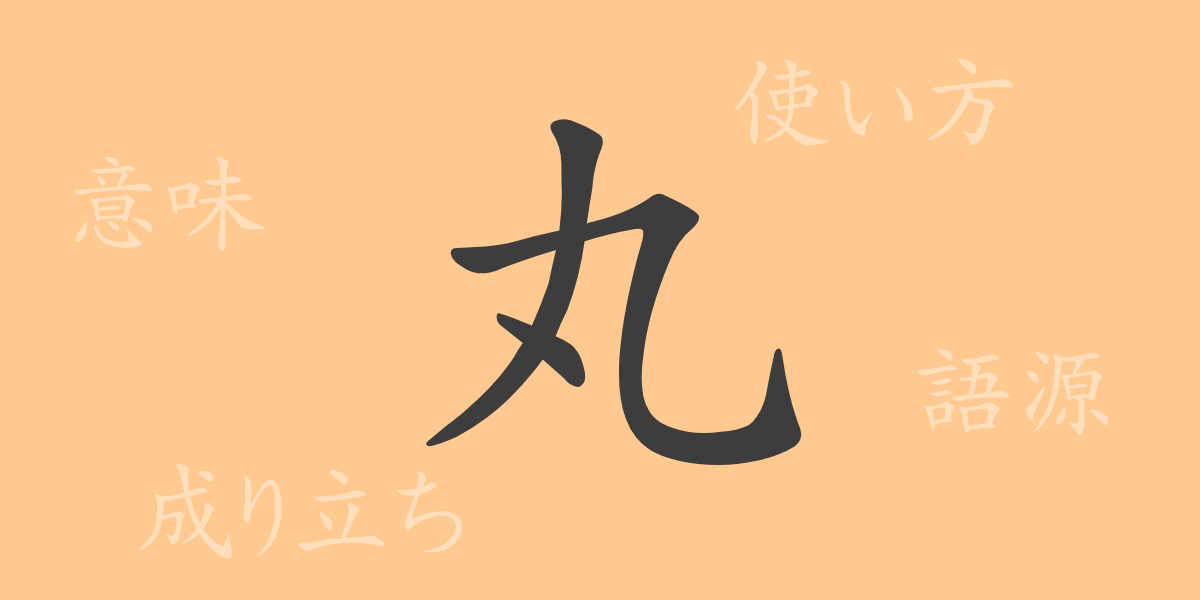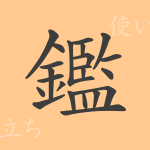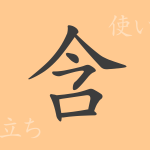Japan’s culture is rich with unique characters, among which the kanji “丸” (Maru) is a symbol deeply embedded in our everyday lives. This article focuses on the simple yet profound kanji “丸” (Maru), exploring its origins, usage, and presence in idioms and phrases. Join us on a journey to rediscover the allure of the Japanese language.
The Origin of 丸 (Maru)
The kanji “丸” (Maru) originates from the character “囗” (Kunigamae), which means enclosure. It came to signify completeness and harmony, as enclosing something protects it and creates a perfect shape. As things that are round took the shape of a circle, the character also became used to describe the form of objects, leading to the adjective “丸い” (Maru-i) and the verb “丸める” (Maru-meru).
The Meaning and Usage of 丸 (Maru)
“丸” (Maru) is widely used to indicate shape, as well as to express a state of completeness and harmony. For instance, “丸い” (Maru-i) refers to shape, while “丸ごと” (Maru-goto) means the entire thing. “丸裸” (Maruhadaka) represents a state of having nothing hidden, and “丸見え” (Marumi-e) indicates that everything is visible. “丸” (Maru) is a versatile kanji used across various parts of speech such as adjectives, adverbs, and nouns.
Readings, Stroke Count, and Radical of 丸 (Maru)
The kanji “丸” (Maru) is an essential part of everyday life in Japan as one of the commonly used kanji.
- Readings: The on’yomi (Sino-Japanese reading) is “Gan” , while the kun’yomi (native Japanese reading) includes “Maru”, “Maru-i”, “Maru-meru”, and so on.
- Stroke Count: “丸” (Maru) consists of 3 strokes.
- Radical: Its radical is “丶” (Ten).
Idioms, Phrases, and Proverbs Using 丸 (Maru) and Their Meanings
There are many idioms, phrases, and proverbs in the Japanese language that include “丸” (Maru). For example, “丸投げ” (Marunaーge) means to leave all responsibility or work to someone else, “丸儲け” (Marumou-ke) refers to making a large profit, and “丸秘” (Maruhi) signifies keeping something strictly confidential. In proverbs, “丸く収まる” (Maru-ku-osa-maru) expresses the resolution of a problem or conflict smoothly, and “丸め込む” (Maru-me-ko-mu) means to persuade someone to do as one wishes.
Conclusion on 丸 (Maru)
The kanji “丸” (Maru) is used extensively in the Japanese language, with various meanings associated with its shape. From its basic use to indicate form to its inclusion in idioms and phrases representing abstract concepts, its applications are diverse. Through this article, we hope you have gained an appreciation for the rich expressiveness of the kanji “丸” (Maru) and the profound depth of the Japanese language.

























